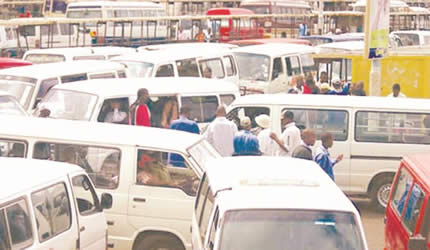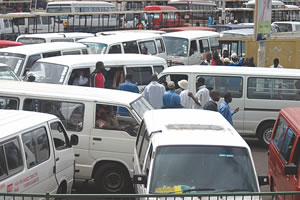Santa’s gift bag runs dry: l No boon for Christmas season shops/Transport operators hardest hit

 Monica Cheru-Mpambawashe and Lovemore Meya
Monica Cheru-Mpambawashe and Lovemore Meya
In an unusual turn of events, those businesses that traditionally expect to make a killing during the end of year festive season are going through a dry spell. Long distance public transport operators have come to expect a business boom in the days just before Christmas and after New Year.
But indications are that this may just be the year when things change, and not for the best.
What has heralded the change? Why are there no hordes of desperate would-be travellers besieging the inadequate vehicles at the termini like Mbare Musika and other pick-up points?
The Herald caught up with Nick Matyukira, an employee at Splash Entertainment Centre at KwaMereki in Warren Park D, who believes that a cultural shift has gradually hit the country as ICT brings about many changes:
“I can attribute the trend of fewer people going to the rural areas to the advent of technology. People now can easily do all the transactions through a cellphone, sending money, buying groceries and so forth. All that means they do not need to travel,” he said.
He also added that financial priorities have shifted as people these days have realised the importance of budgeting the little amount they earn.
“Of late a lot of people now know how to spend their monies wisely since they have to cater for school fees, especially in the coming year. Just look around here, you can actually see there are families eating together in an attempt to outdo the challenges they are facing.”
Matyukira said the global economic challenges have spared no one as even those in the Diaspora, who used to flood the city this time of the year with their expensive cars, are this year conspicuous by their absence.
“Again, people in the Diaspora can no longer afford to come for Christmas as they used to. Or if they do, they are more frugal with their cash since things in the country are expensive.
“A visit to town or this place in the recent years one could easily tell that those from the Diaspora are home with their modern immaculate vehicles, but now times have changed,” said Matyukira.
His sentiments were echoed by many other residents who were to be found on the streets of Harare in the last two days before Christmas.
Stephen Gondowe of Kuwadzana Phase 3 said, “I come from Mt Darwin and was supposed to go back there for Christmas and New Year celebrations since I believe this is the time Christ was born and it is time to be merry with family and friends.
“However, the situation will not permit it due to financial constraints.
“Instead, the little money I had, I sent it with a friend who was going there,” he said.
Gondowe said he hoped the hardships that people are going through are temporary and next year will be better. But he also admitted that the liquidity crunch is a handy excuse as people opt to give in to the temptations of the city.
Gondowe said the activities in the cities with a lot of gigs has become the major pulling factor to some entertainment enthusiasts who cannot travel to the outskirts where there is nothing serious taking place.
Trust Winesi of Warren Park D also said that while in the past many people went to the rural areas, now more of them prefer to stay in the city.
“People in the rural areas are finding it more interesting to flood the urban areas for the holidays. My mom can no longer enjoy spending the festive season at home and instead prefers to come here to Harare. For her that is a breath of some fresh air,” he said.
Similar sentiments were expressed by other interviewees who said that there is nothing to travel for.
Several people around Harare said that they no longer have immediate family in the rural areas and therefore there is no need to make that journey to their roots.
Their lives are fully focused in the city. For others, going home would mean forfeiting some income, which would be highly undesirable.
Zimstats recently released census results which show that less than 20 percent of the working age population is in formal employment with over 60 percent being entrepreneurs of one sort or another.
But for most of them, it is boarder line existence and taking a break is just not practical.
Memory Moyo of Chitungwiza, a tailor, seemed unaffected by the holiday as she was seen busy with business as usual.
“I am trying to make ends meet here my brother. As you can see, I am busy even on a Sunday like this despite it being a public holiday.
“All those finished products you can see heaped there without anyone coming to collect them is an indication that money is a problem.
“So I have to keep working for clients with the money,” she said.
But Moyo insisted that although it would be a last minute rush, she will travel to her rural home in Chiweshe.
“I am going to my home one way or the other, even though I cannot afford money for some groceries. As long as I have enough for bus fare I will be there.
“What is important to me is getting there to meet with my family,” she said.
Grace Hakutangwi, a Dairibord ice cream vendor, says there are people who have to keep things going as the country does not close for the festive season, in spite of appearances.
“What difference does it make getting to celebrate Christmas here in Harare or going to my rural home?” she asked.
“Everyone knows that life these days is expensive — even those in the villages know that as well, so the only way out of all these predicaments we are going through is to supply them with the little I managed to gather.
“Mind you, gone are the days when we used to spend our cash like there was no tomorrow. There is life after Christmas and there are lots of challenging things calling for our attention in January next year,” she said.
It is not only the transport sector that has reported reduced business in this period. Even the retailers have also said that the things could be better.
Clothing shops seem to be the hardest hit but even those selling groceries have not done as well as they expected.
But for the transport there is another factor which may mean that an upturn in the economy will not reverse the trend. In fact it would only strengthen it.
More and more cars are arriving in the country each day.
That means more and more people are turning away from public transport.
Therefore, the Christmas windfall may be gone forever for long-distance transport operators and it is time for them to plan their business operations knowing that Santa will no longer bear any great gifts.








Comments